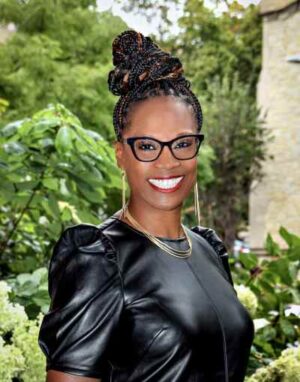Even though Men’s Health Month ended a few days ago, I reflect on the men in my life and their health conditions. One thing that resonates with me is how men, particularly African-American men, do not like going to the doctor.
After doing some research into the matter, I found some interesting facts.
According to the Centers for Disease Control and Prevention
- [perfectpullquote align=”full” bordertop=”false” cite=”” link=”” color=”” class=”” size=””]
- 13.2% of men in the U.S. aged 18 and older are in “fair to poor” health
- 14.1% of men 18 and older smoke cigarettes
- 40.5 of men aged 20 and older have obesity
- 51.9% of men 20 and older have high blood pressure and/or were taking medicine for hypertension
- Men in the U.S. die an average of five years earlier than women.
[/perfectpullquote]
As I reflect, I have lost at least five close male friends before the age of 60 due to chronic diseases that can be prevented. While the I Am That Woman Movement focuses on women’s health and wellness, these statistics sound the alarm for men and women.
According to a Kaiser Family Foundation (KFF) survey, 21% of white men, 25% of Black Men, 29% of Asian and Native Hawaiian or Pacific Islander men, 30% of American Indian and Alaska Native men, and 42% of Hispanic men reported not having a personal doctor or healthcare provider.
We know that Black men don’t trust doctors and health care providers, even from a historical perspective. Black men were used for studies and research that created distrust in our community. I believe the healthcare system can do a better job at developing programs and educating Black men to rebuild trust. But there are also other factors why Black men do not go to the doctor regularly.
The social determinants of health (SDOH) significantly impact Black men. SDOH encompasses the conditions in which individuals live, work, learn, play, worship and age. These include various systems and forces shaping daily life, such as socioeconomic status, education, neighborhood and physical environment, employment, social support networks and access to healthcare.
Additionally, economic policies and systems, development agendas, social norms, social policies, political systems, gender norms, socialization, roles, power relations and access to resources play crucial roles. These factors profoundly influence health, well-being and quality of life, ultimately affecting life expectancy as people age.
But we can’t allow this to be an excuse for why Black men are dying prematurely.
As a community, our health and wellness must become a priority. We must take matters into our own hands by educating ourselves on the importance of not just going to the doctor but being mindful of our nutritional, mental, emotional and physical well-being.
Don’t be silent with the Black men in your life who are not taking care of themselves. Ask them when they had their last physical and perhaps go with them to their appointment. Encourage them to eat better.
Be proactive and ask them to take a walk with you.
We must be proactive in our approach to teach our men how to live. We can’t stand by and keep losing our Black men prematurely.
For more health and wellness tips on how to live, visit our website at www.iamthatwomanmovement.org.

Twyler L. Jenkins is one of the most sought-after event planners in the City of Chicago, since she founded Strategic Events Solutions in 2001. With more than 25 years in conference management, special event planning, and registration facilitation, she is considered an expert in optimizing event profitability. Ms. Jenkins has managed to provide these core competencies services to some of the most notable nonprofit and corporate organizations in Chicagoland. She has efficiently executed her services with excellence for The University of Chicago, The University of Chicago Medicine, McDonald’s, Ronald McDonald House Charities, Rainbow PUSH Coalition, Chicago Urban League, ComEd/Exelon, National Black MBA Association, the American Academy of Matrimonial Lawyers, The Chicago Guardsmen and the Emmett Till Foundation, to name a few. In addition to her event management company, in 2018 Ms. Jenkins launched the I Am That Woman Movement and Retreat in Riviera Maya, Mexico. The IATW Movement and Retreat provides holistic wellness resources, events and programs locally and internationally to women.
Ms. Jenkins serves her community with the same creative and developmental excellence. She is the co-president of the board of directors for the South Side Community Art Center. She remains relative and connected as a member of Delta Sigma Theta Sorority, Inc., Meeting Professionals International, the Professional Convention Management Association, and the Alliance of Independent Meeting Managers.




